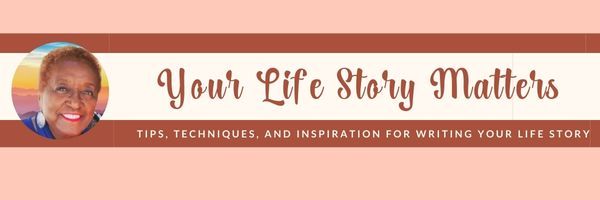A Personal Memory from My Life Story:
When my kids ask, "Mom, how did you and Daddy meet?" I’m instantly transported back to a Friday night in 1968, book in hand, ready for a quiet weekend.
And yet, because a dear friend wouldn’t take no for an answer — and because deep down, my heart was more hopeful than my head wanted to admit — I ended up saying yes to a blind date.
It wasn’t a grand, cinematic night. No orchestra swelled. No lightning struck.
Just a jazz club in Hermosa Beach, candlelight dancing on the tables, the ocean breathing salt into the night air — and a gentle man who, within moments, felt oddly familiar.
Sometimes the most ordinary evenings quietly tilt the axis of your life.
You realize it only later.
That reluctant yes led to a marriage, a family, and a lifetime of memories.
And had I not written that story down, especially after my husband’s passing, it might have slipped quietly away — softened by the years, blurred by the retelling.
Now, it's a small shimmering thread in the tapestry of our family story. (See the full story at florabrown.com/blog/blind-date)
Mindset Preparation:
When you sit down to write about a beginning, an ending, or a transition, don’t search for a dramatic climax.
Instead, honor the quiet pivot — the moment you almost said no, the trembling yes, the fork in the road you barely recognized at the time.
Start by asking yourself:
- What small choice shifted the course of my life?
- What moment grew in importance only in hindsight?
Approach your memory like an archaeologist brushing sand from an ancient artifact — carefully, patiently, lovingly.
Writing Tip:
Focus on sensory atmosphere — the overlooked details that anchor a memory.
In my story, it wasn’t just that we met.
It was the thick scent of ocean air mixed with cigarette smoke, the flickering candles, the lazy jazz threading through the room.
Think: What did the air smell like? What sounds filled the background? How did the night taste or feel?
These small details transform your memory from a dusty fact into a living moment your readers can step into.
Encouragement:
You don't need an epic event to tell a meaningful story.
A blind date. A new house key in your hand. The hush after your firstborn’s cry.
Tiny hinges swing mighty doors.
Your “small” stories are often the ones that whisper the loudest across generations.
Insider Tip:
When writing about transitions, capture the before and after — but linger in the doorway.
That is, don't rush from "I didn’t know him" to "We were married."
Spend time in the middle space where uncertainty and possibility swirl together — the green outfit you reluctantly wore, the butterflies, the way the night air felt different when you stepped back outside.
Readers (and your future self) are fascinated by thresholds. Invite them to stand there with you.
Final Note:
Writing about beginnings, endings, and transitions isn't just about recording facts — it's about honoring the invisible bridges between your old self and the new one emerging.
Every "reluctant yes" you’ve ever given has shaped you.
Every whispered choice deserves to be remembered.
You are the living witness to your own unfolding.
Don't let those shimmering moments slip away.
As you think back on your own life, remember:
The moments that seemed small, inconvenient, or uncertain at the time often grew into the stories you cherish most.
Take a moment today to reflect:
-
What was a time you almost said no, but said yes?
-
What threshold did you step across, even hesitantly, that changed everything?
Capture it.
Write it as you felt it — not as you would explain it now.
Your future self — and those who come after you — will be grateful for the glimpse into the magic of your unfolding life.
Thank you for letting me be a part of your writing journey.
Flora M. Brown, Ph.D.



